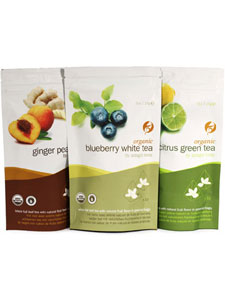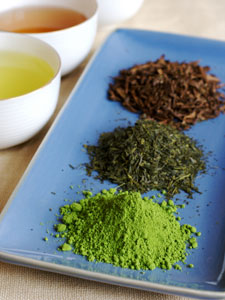Wholesaling Tea Pt 3: Independent Retailers

The US Wholesale Tea Business is a fascinating niche business characterized by an incestuous supply chain and an irrational focus on everything BUT product quality. In this series I'll attempt to unpack a few basic truths about the wholesale tea business that every entrepreneur should learn before either becoming a tea wholesaler or buying from a wholesaler.
In Part 1 I covered the industry at a high level. In Part 2 I covered sourcing, storing and blending teas. In this third installment I will focus on sales to independent retailers and specialty shops. Part 4 will focus on sales into Grocery and large retail channels. Part 5 will cover sales to food-service and hospitality operations.
Before I get started, it's important to read the analysis in Part 2 on buying direct from source. In brief, if you're a small wholesaler starting out you will find it nearly impossible to source a meaningful collection of teas purchased direct from source. You will be buying from other US wholesalers.
Second, it is important to separate Specialty Tea Shops from other Specialty Retailers that carry tea. There are A LOT of retail concepts in which a small collection of teas (loose or bagged) will sell well. For these, the preferred strategy is usually to sell an existing brand with shelf-ready retail packaging. The only burden on the retailer is to select a vendor and unpack the packages onto a shelf. Selling to small retailers who are not focused on tea requires excellent packaging, a streamlined sales and service approach, and solid margins. Most small retailers who are selling a packaged process will expect 50% margin (a 100% markup).
The math would typically work out to something like this: A wholesaler buys a tea for $10 a pound and repackages it in four, 4 ounce packages. Let's assume the packaging costs $1 each. The wholesaler will sell each package to a retailer for $5 each, netting the wholesaler %6, or a 30% margin (on $20 in gross sales). The retailer then sells each package for $10. A larger wholesaler might get the same tea for less than $10 and thereby get a higher margin. In addition, more elaborate packaging may reduce margin by costing more than $1 per package (including tins, labels, etc.)
The challenge for a small wholesaler to create a profitable business selling to small retailers is that the primary driver of success in a mixed retail environment is brand recognition and packaging quality. Brand recognition is difficult to develop and great packaging is expensive. The larger premium brands on the market have huge economies of scale on sourcing teas and packaging, and big leads in the branding arena.
Conventional wisdom is that selling teas to a tea shop is a much more attractive business model. These customers move a lot more tea, and have a better understanding of what they are buying. Some independent tea shops will sell under someone else's brand, but most buy loose teas bulk and repackage under their own name. Selling bulk loose teas removes the requirement for fancy and expensive retail-ready packaging. The flip side is that a tea shop buying bulk teas in larger quantities is going to expect better than 50% margin, especially since they have to cover the labor and costs of re-packaging. Anectodally, I've seen Specialty Tea Shops target anywhere between 50% and 70% margin on loose teas.
These margins are extremely difficult for a new, small wholesaler to meet without huge quality sacrifices. At the end of the day, a large wholesalers who imports direct might sell a good English Breakfast Tea for $10 a pound. They'll offer the same price direct to the retailer AND to the small wholesaler. So how does the wholesaler find a profit in that? By buying in quantity. The more you buy the lower the cost, but this becomes a chicken egg challenge. If you don't have the money up front to buy a lot of inventory then it's hard to make a profit.
As importantly, most Specialty Tea Shops sell a wide variety of teas. 150 teas is not an uncommon number. In order to build a profitable business selling to Specialty Tea Shops, you need to carry a wide variety of teas in enough quantity to turn a profit. Even then you'll be competing directly with the wholesaler YOU buy from who will get your profit margin and theirs when selling directly to the target customer.
Long story short, anything is possible, but the challenge of launching a tea wholesaler realistically requires MORE capital than opening a retail shop. Having seen the inner workings of wholesale, internet and retail tea operations I personally would not touch the wholesale market without at least $500,000 in cash. No doubt there are successful wholesalers like my friend Beth Johnston over at Teas Etc. who built a pretty impressive business on a shoestring budget. Beth started out buying from US wholesalers and now is able to source a good portion of her collection direct from source. It is possible, but Beth also started out 12 years ago. Anyone new to the market today will see many times the competition that Beth saw in the late 90's. 12 years ago Rishi Teas had JUST started and Teavana, Adagio, TeaGschwendner, and so many others didn't even exist (or at least not in the US).
At the end of the day, with the exception of a handful of large US wholesalers, the opportunity for most tea businesses is to treat wholesale either as a side business or an opportunity to help build a brand. Wholesale as a profit center is difficult and expensive!
Adagio Teas
Twitter: @AdagioRetail

